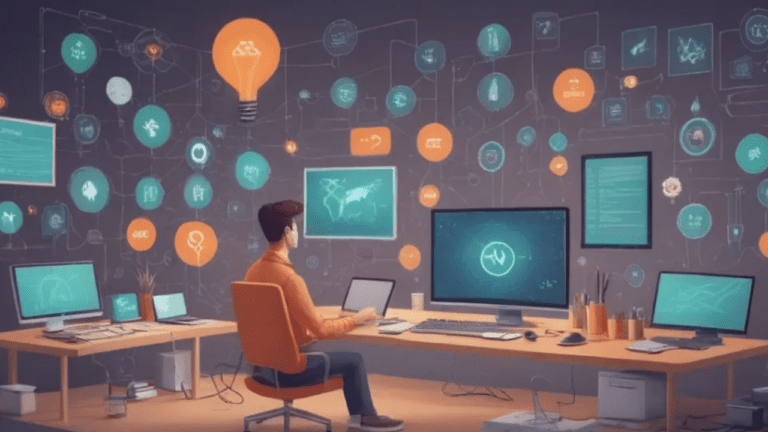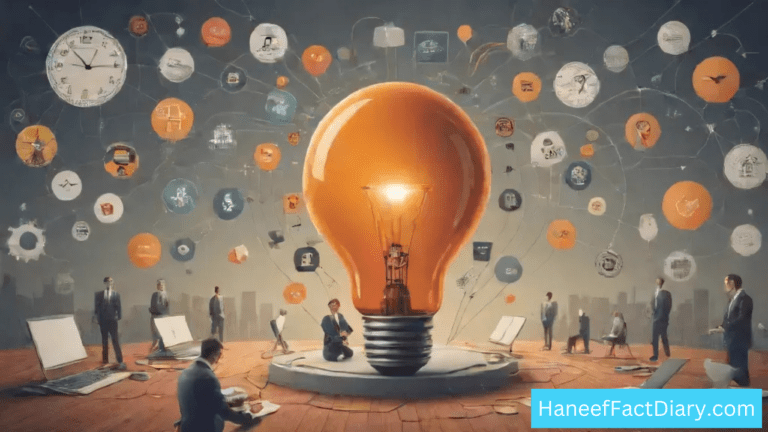Self-Awareness and Continuous Learning – Unleash Growth
The Power of Self-Awareness and Continuous Learning
Welcome to our article on personal growth and self-improvement. In this piece, we explore the importance of self-awareness and continuous learning, and how cultivating these skills can lead you to unlocking your potential for personal transformation.
Self-awareness is the ability to recognize and understand your thoughts, emotions, and behaviors. It is a critical aspect of personal growth as you cannot improve what you do not recognize or understand. Continuous learning, on the other hand, refers to having a lifelong commitment to acquiring new knowledge and skills. It enables you to adapt to changing circumstances and expand your possibilities.
Together, self-awareness and continuous learning fuel personal growth and help you reach your full potential. Let’s dive deeper into these concepts and understand how they can contribute to your journey of self-improvement.
Key Takeaways:
- Self-awareness is the ability to recognize and understand your thoughts, emotions, and behaviors.
- Continuous learning is having a lifelong commitment to acquiring new knowledge and skills.
- Cultivating self-awareness and continuous learning helps in personal growth and self-improvement.
- Personal growth and self-improvement require constant reflection and learning.
- Both self-awareness and continuous learning contribute to personal transformation.
The Entrepreneur’s Mindset: Cultivating Growth Mindset and Resilience
As entrepreneurs, developing the right mindset is critical for personal growth and success. The entrepreneur’s mindset involves cultivating a growth mindset and building resilience to overcome challenges.
Having a growth mindset means embracing challenges and setbacks as opportunities for learning and growth. It requires adopting a positive attitude towards failures and perceiving them as temporary setbacks rather than permanent roadblocks. Cultivating a growth mindset allows us to stay motivated, persistent, and open-minded, propelling us toward personal growth and development.
Read more of this: Growth Mindset Cultivating and Resilience Strategies
Building resilience is also crucial for personal growth as an entrepreneur. Resilience means developing the ability to adapt to change, cope with stress, and overcome obstacles. Entrepreneurs face many challenges on their path to success, and resilience helps them bounce back from setbacks, learn from them, and move forward.
By embracing the entrepreneur’s mindset, we can cultivate a growth mindset and build resilience, allowing us to overcome obstacles, learn from failures, and achieve personal growth and success.
Read more of this: Entrepreneur’s Mindset: Key to Success Unlocking
Developing Strategic Thinking and Decision-Making Skills
Developing strategic thinking and decision-making skills are critical components of personal growth and self-improvement. Strategic thinking involves the ability to analyze situations, ideas, and information from a holistic perspective to make well-informed decisions. On the other hand, decision-making skills involve the capacity to evaluate various options and select the best course of action.
By nurturing strategic thinking and decision-making skills, you enhance your problem-solving skills, enabling you to be more effective in your personal and professional life. You can make informed decisions that align with your goals and values, rather than making choices based on impulse or emotion.
One way to develop these skills is through practice. Engage in activities that require critical thinking and analysis, like puzzles or brain games, to sharpen your mental acuity. Seek feedback from peers and mentors to learn from their perspectives and experiences. Reading books and attending workshops on strategic thinking and decision-making can also be valuable ways to improve these skills.
Read more of this: Enhance Your Strategy with Decision-Making Skills
Real-World Organizations and Decision-Making
Real-world organizations can provide helpful insights into the importance of these skills. For example, Harvard Business Review highlights that many large companies invest in training programs that focus on strategic thinking and decision-making skills for their employees. By doing so, these companies encourage employees to think critically and develop innovative solutions to challenges.
| Company | Program | Description |
|---|---|---|
| g2g/going2google | A program for employees to develop leadership, communication, and decision-making skills. | |
| IBM | Leadership Development | Initiative to promote critical thinking, decision-making, and problem-solving among high-potential employees. |
| McKinsey & Company | McKinsey Academy | Online training platform with various programs, including leadership and problem-solving. |
Overall, developing strategic thinking and decision-making skills is a crucial aspect of personal growth and self-improvement. By honing these skills, you can enhance your problem-solving abilities and make more informed decisions that align with your goals and values.
Embracing Innovation and Adaptability
Innovation and adaptability are essential elements in achieving personal growth. In today’s rapidly changing world, being able to embrace new ideas and opportunities, and quickly adjust to changing circumstances can help us navigate and thrive in both our personal and professional lives.
Adapting to change can often be challenging, but it’s crucial for individuals who aim for personal growth and self-improvement. By being adaptable, we can overcome obstacles, seize new opportunities, and maximize our potential for success. Furthermore, by continuously innovating in our personal and professional lives, we can enhance our ability to learn, develop new skills, and expand our potential.
When we embrace innovation and adaptability, we open ourselves up to new ways of thinking that contribute to our personal growth and development. Creativity, curiosity, and resourcefulness are some of the qualities that are essential to successfully navigate through a rapidly changing world. By focusing on these qualities and combining them with our existing skill sets, we can maximize our potential for personal growth and success.
Ultimately, by embracing innovation and adaptability, we become more self-aware, empathetic, and resilient individuals, able to face any challenge and seize any opportunity that comes our way.
Read more of this: Embracing Innovation and Adaptability for Growth
Building Grit and Overcoming Challenges
We all face challenges in our personal and professional lives. Overcoming them requires determination, resilience, and, most importantly, grit. Building grit is crucial for personal growth, as it helps us navigate obstacles and achieve success despite adversity.
“The greatest glory in living lies not in never falling, but in rising every time we fall.” – Nelson Mandela
Grit is the combination of passion, perseverance, and resilience. It is the drive to keep going, even when the going gets tough. When we build grit, we embrace challenges as opportunities for growth and learning. We see setbacks as temporary and learn from them, rather than letting them defeat us.
Read more of this: Building Grit & Overcoming Challenges Guide
Those who possess grit are more likely to achieve their goals, both personally and professionally. They are better able to manage stress and overcome obstacles, even in the face of adversity. Grit also plays a vital role in mental health, as it helps individuals develop a sense of purpose, meaning, and direction in life.
| Ways to Build Grit | Why It Matters |
|---|---|
| Set challenging goals | Grit helps us overcome challenges and achieve success. |
| Keep a positive mindset | A positive attitude helps us stay motivated and focused on our goals. |
| Practice self-discipline | Self-discipline is key to building grit and achieving long-term success. |
| Embrace failure | Failing helps us learn, grow, and become more resilient. |
| Cultivate a support system | Having a supportive network helps us stay motivated and focused on our goals. |
Overcoming challenges and building grit takes time and effort. It requires a willingness to step outside of our comfort zones and take risks. However, the rewards are worth it. By building grit, we can achieve personal growth and success, even in the face of adversity. So, the next time you face a challenge, remember that it is an opportunity to build grit and become stronger and more resilient.
What is Self-Awareness Theory? Understanding the Basics
Self-awareness theory is the study of how our self-perceptions shape our behavior, thoughts, and emotions. It postulates that people have an innate drive to seek knowledge about themselves and their internal states, including values, feelings, strengths, weaknesses, and goals. By knowing oneself, one can better navigate life’s challenges, positively influence one’s environment, and achieve personal growth and development.
According to self-awareness theory, people can experience two forms of self-awareness: internal and external. Internal self-awareness involves reflecting on one’s thoughts, feelings, and beliefs, while external self-awareness involves perceiving how others see oneself. Both are crucial for personal growth and self-improvement, as they help to identify areas for improvement and leverage strengths.
Self-awareness theory has become increasingly relevant in today’s society, where there is a growing emphasis on self-development and personal growth. By understanding the basics of self-awareness theory, we can become more equipped to explore our inner selves, embrace our strengths and weaknesses, and create a fulfilling life that aligns with our aspirations and values.
4 Proven Benefits of Self-Awareness
Self-awareness is the cornerstone of personal growth, facilitating a deeper understanding of oneself and one’s relationships with others. Through self-awareness, we can identify our strengths and weaknesses, opportunities for growth, and potential blind spots. In this section, we explore four empirically supported benefits of self-awareness that can positively impact personal growth and well-being.
1. Improved Emotional Regulation
Individuals who cultivate self-awareness are better equipped to regulate their emotions, respond to stressors in a healthy way, and maintain resilience in the face of adversity. Research shows that self-awareness is positively associated with emotional intelligence, which is a critical component of effective leadership, personal relationships, and mental health.
2. Increased Self-Confidence
By understanding our strengths, weaknesses, and unique attributes, we can cultivate a sense of self-confidence that enables us to pursue our goals and dreams. Self-awareness helps us identify areas for growth and development, allowing us to build on our strengths and work on our weaknesses with a growth mindset.
3. Enhanced Interpersonal Relationships
Effective communication and collaboration require a high degree of self-awareness. By understanding our thoughts, feelings, and behaviors, we can develop empathy for others and better navigate interpersonal relationships. Self-awareness also helps us establish healthy boundaries and communicate our needs more effectively.
4. Improved Decision-Making
Individuals with high levels of self-awareness are more likely to make informed decisions based on their values, goals, and priorities. By understanding our biases, emotions, and underlying motivations, we can make decisions that align with our long-term interests and contribute to our personal growth and development.
Overall, self-awareness is a powerful tool for personal growth and transformation. By cultivating self-awareness through practices such as mindfulness, journaling, and seeking feedback from trusted sources, we can unlock our full potential and lead more fulfilling lives.
3 Self-Awareness Skills for Personal Growth and Self-Improvement
Self-awareness is a key component of personal growth and self-improvement. By developing self-awareness skills, we can gain a better understanding of ourselves, our strengths and weaknesses, and our impact on others. Here are three examples of self-awareness skills that can promote personal growth and self-improvement:
| Self-Reflection | Active Listening | Mindfulness |
|---|---|---|
| What it is: Taking time to examine our thoughts, emotions, and behaviors and analyze how they impact our lives. | What it is: Listening mindfully to others and seeking to understand their perspectives and experiences. | What it is: Paying deliberate attention to the present moment without judgment or distraction. |
| Why it matters: Self-reflection fosters self-awareness and helps us identify areas for personal growth and development. | Why it matters: Active listening promotes empathy, effective communication, and relationship-building. | Why it matters: Mindfulness enhances emotional regulation, reduces stress, and improves cognitive function. |
By incorporating these self-awareness skills into our daily lives, we can foster personal growth and development, improve our relationships, and enhance our overall well-being.
5 Ways to Increase Your Self-Awareness
Self-awareness is the key to understanding our thoughts, feelings, and behavior. It enables us to recognize our strengths and weaknesses, and how we impact others. Here are five ways you can increase your self-awareness for personal growth and self-improvement:
| Technique | Description |
|---|---|
| Journaling | Take time to reflect on your thoughts and experiences. Write down your emotions, motivations, and actions. Analyzing your entries regularly can help you identify patterns or triggers. |
| Mindfulness | Practice being present in the moment. Use meditation or breathing exercises to calm your mind and observe your thoughts without judgment. Being mindful can help you better understand your emotions and how to respond to them. |
| Personality Assessments | Take online personality assessments like Myers-Briggs or the Enneagram to gain insight into your traits, tendencies, and behavior. Analyzing your results can increase your self-awareness and contribute to personal growth. |
| Solicit Feedback | Ask friends, family, or colleagues for honest feedback on your behavior or actions. Listen to their perspectives and use their input to increase your self-awareness and identify areas for improvement. |
| Self-Reflection | Take time to reflect on your recent decisions, experiences, and interactions. Analyze your behavior and consider how you could have handled situations differently. Being honest with yourself can build self-awareness and accelerate growth. |
By incorporating these practical techniques into your routine, you can increase your self-awareness and foster personal growth and self-improvement. Remember, increasing self-awareness is a continuous process, so be patient and invest time and effort in learning about yourself.
The Role of Self-Awareness in the Workplace and Leadership
In today’s fast-paced and ever-changing work environment, self-awareness has become an essential skill for workplace success and effective leadership. Self-awareness involves paying attention to our thoughts, emotions, and behaviors, as well as understanding how they impact others around us.
Leaders who exhibit high levels of self-awareness are better equipped to understand their own strengths and weaknesses and recognize how they can impact the people they work with. This insight can help leaders identify areas for personal and professional development and enhance their leadership skills.
Building self-awareness in the workplace can also foster more positive relationships among team members. When individuals are aware of their own emotions and how they affect others, they are better able to communicate effectively and take steps to resolve conflicts as they arise.
Personal growth and self-improvement are also excellent drivers of workplace success. When individuals are committed to continuous learning and development, they are empowered to make more informed decisions, take calculated risks, and drive innovation in their organizations.
Examples of Self-Awareness in the Workplace
| Self-Awareness Skill | Example |
|---|---|
| Active Listening | Active listening involves paying full attention to what someone is saying, taking time to understand their perspective and asking clarifying questions. A leader who practices active listening can build better relationships with their team members and foster a more collaborative work environment. |
| Emotional Intelligence | Emotional intelligence involves being aware of one’s own emotions and understanding how to manage them effectively. A leader who possesses emotional intelligence can better manage stress and pressure and build stronger relationships with their team members. |
| Self-Reflection | Self-reflection involves taking time to evaluate one’s actions and behaviors, considering how they may impact others and identifying areas for personal and professional growth. A leader who engages in self-reflection can identify and address potential roadblocks to success and make more informed decisions. |
Overall, self-awareness plays a critical role in personal growth, workplace success, and effective leadership. By understanding ourselves and how we interact with those around us, we can make better decisions, build stronger relationships, and foster a more positive and productive work environment.
Conclusion
In conclusion, enhancing personal growth through self-awareness and continuous learning is a powerful tool for achieving success and fulfillment in life. By developing our self-awareness skills, we can gain a deeper understanding of ourselves, our values, and our goals, which can guide us toward a path of self-improvement and transformation. Through continuous learning, we can expand our knowledge, skills, and perspectives, helping us to adapt to new challenges and opportunities.
Self-reflection, self-discovery, and lifelong learning are crucial to unlocking our full potential and achieving enhanced personal growth. By embracing these practices, we can cultivate a growth mindset, build resilience, and overcome challenges that come our way. Furthermore, self-awareness plays an indispensable role in the workplace and leadership, contributing to improved relationships, effective decision-making, and overall success.
As we continue on our growth journeys, let us remember the importance of self-awareness and continuous learning. Let us remain committed to developing ourselves, our skills, and our knowledge, and let us never stop striving toward our individual goals and aspirations.
FAQ
What is self-awareness?
Self-awareness is the ability to recognize and understand one’s thoughts, emotions, and behaviors. It involves being conscious of our strengths, weaknesses, values, and motivations.
How does self-awareness contribute to personal growth and self-improvement?
Self-awareness is the foundation for personal growth and self-improvement. It allows us to identify areas for development, harness our strengths, and make intentional choices that align with our values and goals.
What are some examples of self-awareness skills?
Examples of self-awareness skills include self-reflection, mindfulness, emotional intelligence, active listening, and seeking feedback from others.
How can I increase my self-awareness?
There are several ways to increase self-awareness, such as journaling, practicing mindfulness and self-reflection, seeking feedback from others, engaging in therapy or coaching, and exploring personal values and beliefs.
How does self-awareness impact relationships?
Self-awareness is essential in building healthy and meaningful relationships. It helps us understand our own emotions and behaviors, enabling effective communication, empathy, and conflict resolution with others.
What role does self-awareness play in the workplace and leadership?
Self-awareness is crucial in the workplace and leadership. It allows individuals to better understand their strengths and weaknesses, communicate effectively, make informed decisions, and build positive and productive relationships with colleagues and team members.
What are the benefits of self-awareness?
Self-awareness has numerous benefits, including improved decision-making, increased emotional intelligence, better stress management, enhanced interpersonal relationships, and greater personal growth and achievement.
How does self-awareness contribute to continuous learning?
Self-awareness promotes continuous learning by helping individuals identify areas for growth and improvement. It enables us to reflect on our experiences, learn from mistakes, and seek out new knowledge and skills to further our personal and professional development.







